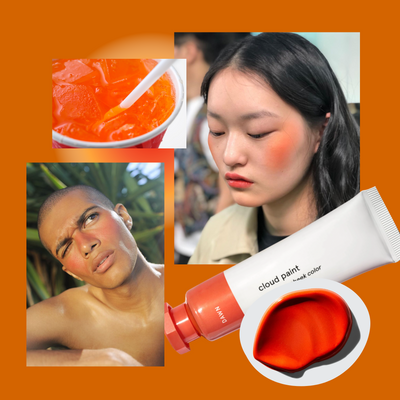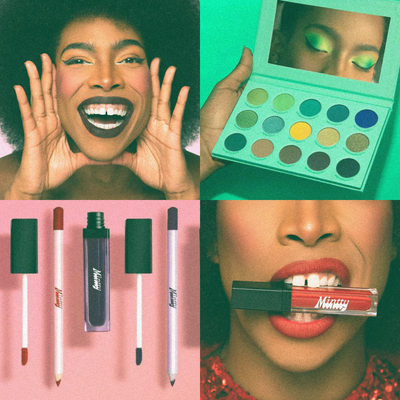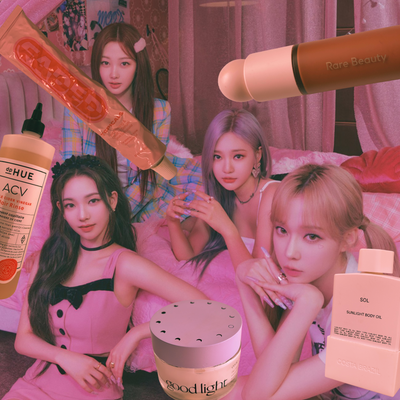How do you get a job in beauty?
For many of you, beauty and the industry is a passion. But how does one actually land their dream jobs at a prestigious beauty brand? According to Michelle Lee, the editor in chief at Allure, it’s all about being completely passionate. “Be a consumer of all things beauty,” she says. “Read everything you can and learn every aspect. If you want to get into editorial, write for everything and everyone you can. If you want to work in beauty, learn about all the facets: video, products, learning about ingredients. There’s a lot of science, research and reporting people tend to ignore. Do your homework.”
SEE ALSO: You’re recycling your beauty products all wrong
For more insights into the state of beauty, what she thinks about accounts like Estee Laundry, and how to make it in 2019, we sat with Michelle while at SCAD. The university had invited her to moderate a conversation with designer Phillip Lim, who was honored with the SCAD Etoile. The designer was also there attending SCAD’s annual fashion presentation where the best and brightest showcased their work in a finale showcase.
First things first: How did you get into beauty?
I knew I wanted to work in editorial but I had no clue what people did. I moved from Florida and I wanted to be a fashion editor. I didn’t know what that meant. You don’t know until you get into the industry and cut your teeth, which is what I did.
I actually got a tour of SCAD and the new beauty program (the Business of Beauty and Fragrance) here. It’s amazing, first of all. I wish I could turn back the time and come here. There’s not a lot of beauty programs that can teach you about the entire beauty industry. That’s so important and really empowering.
How should one prepare for the industry if they didn’t get a specific beauty degree like at SCAD?
Young people need to know the wide-range of opportunities in the beauty industry. Be a consumer of all things beauty, read everything you can, learn every aspect. If you want to get into editorial, write for everything and everyone you can. If you want to work in beauty editorial learn about all facets, video, products, learning about ingredients also. I think there’s a lot of science research and reporting people tend to ignore. I think people just think about color or trends. I love skincare. I love learning about skincare ingredients, if you have a good foundation of knowledge you’ll have a good grasp of the industry. Figuring about the range of potential opportunities. And being an ultimate consumer. Ingesting all kinds of information.
And knowing that beauty isn’t one size fits all, that there’s so many different jobs, right?
Yes. If you want to get into a big company, there are so many different types of jobs people don’t know what that is. If you can get an internship or one on one coffee to get into them and get to understand what the roles are, it’s important to see beyond social media.
Do you hire people based on their social media presence?
I get asked that all the time. A big social media presence is a plus but definitely not required. Obviously, if you’re hiring for someone in social media or personality for the brand then absolutely. I do look at everyone’s socials in general because I want to see who they are as a person, see their voice, aesthetic – that says a whole lot. It’s really important to have all your social media in check especially in beauty and fashion, which are such visual mediums. But I personally don’t require everyone have a social media presence.
Speaking of social media, what are you thoughts on accounts like Diet Prada and Estee Laundry?
I follow them. I think some of the stuff they do is really great. During the whole Dolce and Gabbana racism that’s the first place people went to find out [about a racist ad]. People wouldn’t have noticed it as much if it wasn’t for social media. Sometimes the danger of call out accounts though, is that sometimes becomes a little bit dangerous. Sometimes it’s not backed up by facts. In the traditional sense of journalism the New York Times, for instance, is always fact checked. Some of these call outs on social media now can have a mob mentality with certain things without fully understanding all the facts of some things. There’s a lot of great work happening but people need to understand the danger as well.
In terms of the beauty industry, what else needs to be done to create more inclusivity?
It’s really interesting and it’s been a very interesting couple of years. Asian Americans have made massive strides in culture. It’s largely driven by Korean culture in terms of Kbeauty and music. But we’re still not there yet. There is always something else. We had a three Asians on our Allure cover and people were like, where are the South Asians? There’s so many communities that aren’t represented and now we’re at a point where people have to realize that there’s nuance, too. There’s a lot of nuance.It’s not just about putting a light skinned black model on the cover. You have to think about the colorism on the scale of that culture. In Asian cultures there’s a scale as well. We have to realize that not everyone fully understands that. I was talking to some people who didn’t understand that colorism existed in the Asian community. We, as people of color, have to accept that not everyone knows what we know. We have to help educate people.There are other people who are underrepresented like the disabled. We did a story on how there are big brands doing things about the blind. It was about beauty and blindness. I never thought about it before. There are brands putting braille on bottles. Just because you’re blind doesn’t mean you don’t care about what you look. Even those of us who feel we’re doing so much there’s so much more we can do.






